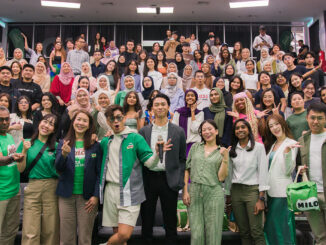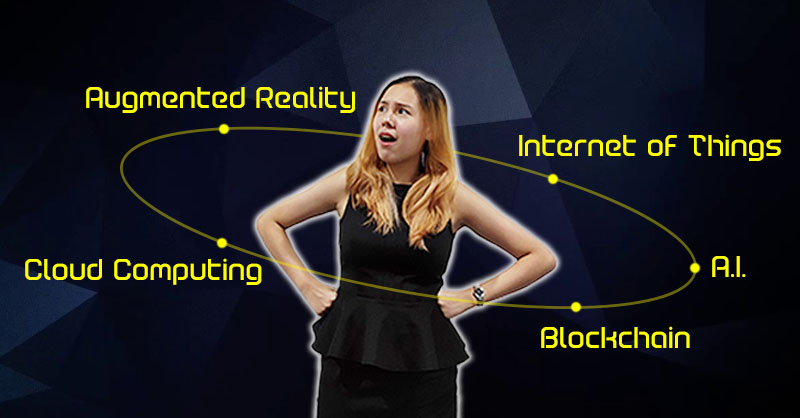This M’sian uni prepared themselves to teach during a pandemic, 8 years before the MCO
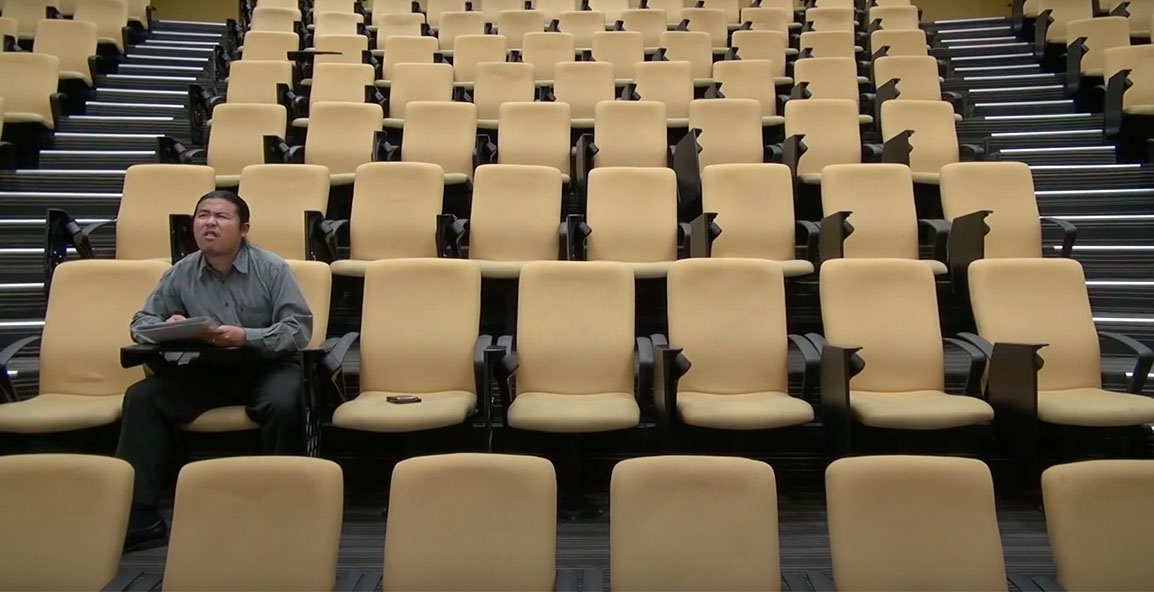
- 1.4KShares
- Facebook1.4K
- Twitter2
- LinkedIn2
- Email3
- WhatsApp29
“Zoom”.
That’s probably what you’re expecting to see in an article about how unis continued to teach students over the MCO.
Well, you’re right, but this is also a story that involves a lot more technology, creativity, and foresight; along with a small bit of humble bragging from this writer. Also, Taylor’s didn’t pay us to write this.
Back in May, this writer was asked by a lecturer friend to share tips on writing short scripts in his scriptwriting class at Taylor’s University; since he won several Best Script awards at the Short+Sweet Theatre Festival (✓Humblebrag). During the 30-minute session on Zoom, this writer noticed several things never before seen when he was in college:
- Students were actually asking questions without being prompted
- Students asking followup questions
- Students calling out one guy who fell asleep, asked him to wake up, and even called him on his phone
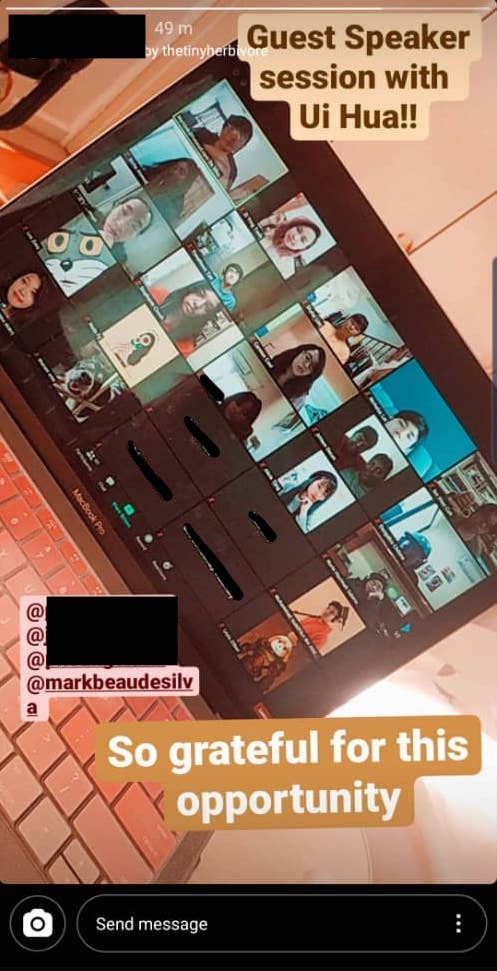
Making small talk after the class, lecturer friend said a couple of things that got this writer’s cilisenses tingling – there’s a story here (✓Not sponsored). Long story short; Taylor’s spent millions developing a “backup plan” that they might never use.
And it was all because of the 2002 SARS epidemic.

After the conversation, we officially got in touch with Taylor’s to see what this whole backup plan was about and, while a Taylor’s lecturer waking up in cold sweat from a nightmare of a world without access to education would make a dramatic story, it turns out the actual reason is a lot more pragmatic.
Back in 2002, Hong Kong and Singapore were hit bad enough by the SARS epidemic for each country’s government to order a closure on schools and universities. Although Malaysia was largely spared, Taylor’s saw how an epidemic could potentially disrupt classes for weeks or even months on end; and wanted to prepare for a time if something similar were to happen in here (✓Foresight).
“Taylor’s developed an e-Learning Masterplan at a cost of almost RM50 million over 5 years.” – Professor Dr Pradeep Nair, Deputy Vice Chancellor at Taylor’s University
Taylor’s didn’t tell us for sure, but we’re pretty certain someone from the accounting department got a mild aneurysm when they saw the cost estimate.
So, what does a RM50 million masterplan bring? Well….
They invented a self recording whiteboard thingamajiggy
The RM50 million didn’t go to sticking webcams in front of the classroom and calling it ‘digital transformation plan’. It went to improving the experience for students and lecturers so that it can be integrated into everyday, non-pandemic classes. So really, a lot of what you’re about to read is already being used in Taylor’s way before the MCO started (✓Clickbait)
After Taylor’s mentioned using “lightboards” in their online lectures for the fifth time, we finally asked “Sorry, but did you mean whiteboards?”. And that was when we got the You-Didn’t-Do-Your-Homework tone as they explained that they created a glass board that records what lecturers write in real time, which can then be directly included in lecture videos instead of someone editing this stuff in. It’s easier to understand when you see it for yourself:
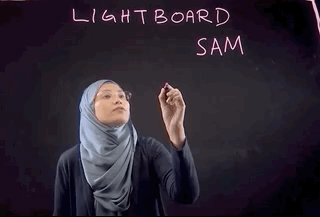
Not everything was invented though. Some lecturers like Dr. Yap Wei Hsum, a senior lecturer from their School of Biosciences, decided to invest in a virtual lab simulator called Labster. It’s basically a realistic first-person “game” that allows users to practice conducting experiments without worrying about time, failure, or danger before they do it in real life – like how F1 teams use simulators to test out modifications to race cars.
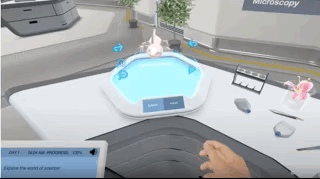
With many students taking to Labster like moss to an agar plate, Dr. Yap is looking into ways to make the experience even more realistic:
“I believe the way forward is to engage students by using Labster’s VR version so that they are more immersed in the lab environment itself.” – Dr. Yap
Speaking of which.
Some lecturers used AR and gamification in their classes
It’s no big secret that law isn’t one of the easiest courses to take, but some subjects like Land Law are a little more gruelling than others. When we asked our Asklegal siblings what studying Land Law was like, the response was…

Senior Law lecturer Puteri Sofia Amirnuddin probably saw enough thousand-yard stares in her classes, so she decided to try a different method of teaching:
“After 5 years, I realized something needed to be done to lift up students’ spirit when it comes to learning Land Law. That’s when I embarked on gamifying Land Law using Augmented Reality.” – Puteri Sofia Amirnuddin
To make this happen, she roped in Mike Choong and Razif Mohamed from the Taylor’s Design School, whose own students have designed AR and VR prototypes for games, Spark lenses (kinda like the 3D filters in Snapchat), videos, and other media.
We’re not going to go too much into the technical stuff but, basically, they came up with a Mission Impossible-type role playing game (✓Creativity) where students have to follow a trail of clues by using an AR app to scan websites and videos. So right now, a course in Land Law and English Legal System looks like this (full video here) :
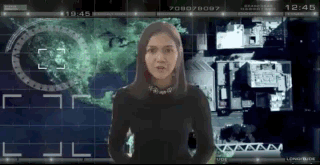
With clues gained from answering questions or doing some reading on Land Law and the English Legal System, scanning the right area would display more videos or clues on top of whatever their phone camera is looking at – kinda like how Pokemon Go allows you to see a Squirtle in your toilet bowl. After that, students work in groups to make videos showing their solution for solid bragging rights…. if they win.
Puteri Sofia Amirnuddin has also integrated gamification into her regular classes, saying:
“[Gamification] encourages students to participate actively in discussion as they are triggered by the reward (in the form of points) that they will receive upon providing correct answers or even their views on certain areas of law.”
So… what were classes like during the MCO?
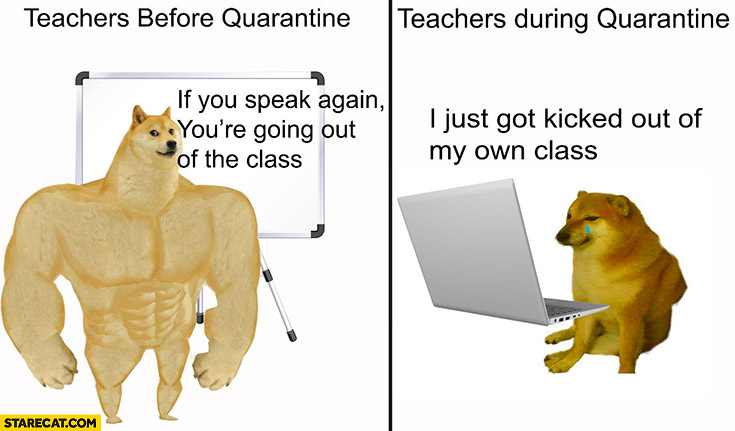
We kinda just focused on what we considered the cool stuff in this article, but many elements of the e-Learning Masterplan is something that you would probably expect to see at any modern university like…
- MOOCs (online courses)
- ReWIND (online lectures)
- Keeping lecturers up to date on virtual conferencing tools like Zoom, Microsoft Teams, and other apps that you never heard of till 4 months ago.
- …you get the point.
However, it’s one thing to have these alongside regular classes but… what if it BECOMES regular classes?
Overall, all 3 lecturers we spoke to didn’t see any drops in attendance over the MCO (where would they even skip class to???). In fact, it seems that many students are showing up early for classes.
“My eyes light up when I see students are already in the [Zoom] waiting room as early as 8.00am when in fact the tutorial starts at 8.30am.” – Puteri Sofia Amirnuddin
However, all 3 also mention that they had to change their teaching methods over the MCO. Mark Beau de Silva – the performing arts lecturer who kickstarted this article – now starts his classes with breathing exercises and warm ups because “the reality now is that students can just hop out of bed into class”.

Generally though, it has opened up more conversation between lecturers and students because this MCO thing is a new experience for everyone involved:
One of the most memorable things which happened in my class was that students were commenting each other’s hair style after not having hair cut for more than two months ^^ – Dr. Yap Wei Hsum
I see some more reserved students now come forward, perhaps online classes helps them express themselves, in a way. – Mark Beau de Silva
Another thing they can all agree on? That students actually miss attending class.
At the end of the day (or MCO) though, there are lecturers in other universities who use low-tech methods to keep students engaged, like this UKM professor who uses manga to teach law; which perhaps indicates that the technology isn’t as important as the creativity & passion of the people using it (✓ Creativity).
- 1.4KShares
- Facebook1.4K
- Twitter2
- LinkedIn2
- Email3
- WhatsApp29


